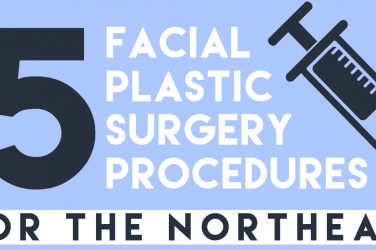There are a lot of myths about testosterone, many of which can mislead individuals about its effects on health and well-being.
Believing these myths can lead to unnecessary fears about hormone replacement therapy or, conversely, to the misuse of supplements in pursuit of unrealistic physical goals. Moreover, these misconceptions can deter people from seeking proper medical advice and treatment, potentially exacerbating health issues linked to hormonal imbalances.
To clear up these misconceptions, it’s vital to distinguish between truth and fiction and grasp the scientific facts about testosterone and its effects on the body.
In this blog post, we will debunk the most common testosterone myths, shedding light on what’s actually safe and beneficial for your health.
What is Testosterone?
Testosterone, the main male hormone, is crucial for developing reproductive organs like the testes and prostate. It also influences masculine traits like facial and body hair growth, voice deepening, and muscle and bone strength. Additionally, testosterone impacts mood, cognitive function, and red blood cell production, emphasizing its significance for overall male health.
What are the Impacts of Low Testosterone?
Low testosterone levels, or hypogonadism, can cause various symptoms such as erectile dysfunction, reduced libido, fatigue, muscle loss, and mood swings. It’s crucial for men to recognize these signs and consult a doctor if they suspect they’re experiencing them.
If you’re dealing with low testosterone, trust Best TRT online for top-quality therapy services. Their expert team offers safe, convenient, and effective treatments, guiding you toward better well-being with care and confidence.
What are the Myths Surrounding Testosterone?
Misconceptions about testosterone are common, leading to misunderstandings about its role in men’s health. Here are some prevalent myths about testosterone:
Testosterone therapy is unsafe.
Many believe that testosterone replacement therapy (TRT) is risky. However, when it’s administered properly and overseen by a healthcare professional, it can safely and effectively treat men with clinically low testosterone levels.
Testosterone supplements are a quick fix for all health issues.
Some men may believe that taking over-the-counter testosterone supplements can address various health concerns, from low energy levels to reduced muscle mass. However, the reality is that these supplements may not be suitable or effective for everyone, and they should not be used without proper medical guidance.
Aging men need testosterone to maintain their youth and vitality.
As men age, there’s a common misconception that they require testosterone supplements to preserve their youth and energy. However, this belief overlooks important aspects of aging and may not be necessary for everyone.
What are the Truths About Testosterone?
Men should grasp the realities of testosterone to make informed health choices. Here are some key insights you need to know:
Testosterone therapy is safe when used appropriately.
Many studies have demonstrated the safety and efficacy of testosterone replacement therapy when prescribed and monitored by a qualified healthcare provider. It is important for men to understand that TRT should only be used when there is a genuine medical need and not for the purpose of enhancing athletic performance or reversing the natural aging process.
There are limitations and benefits of testosterone supplements.
While testosterone supplements may have some benefits for certain individuals, they are not a one-size-fits-all solution. It’s important for men to consult with a healthcare professional to find the most appropriate course of action for addressing any potential testosterone-related health issues.
Healthy aging involves a multifaceted approach, including diet, exercise, and preventive healthcare.
While it’s true that testosterone levels naturally decline with age, the necessity for supplements or TRT to maintain youthfulness is a misconception. Testosterone therapy is primarily recommended for those with clinically low testosterone levels rather than as a universal anti-aging solution. Before considering testosterone supplements or therapy as a means to counteract aging, men should consult healthcare professionals to understand the benefits and risks based on their individual health profiles.
Is Testosterone Replacement Therapy Safe?
Before considering testosterone replacement therapy, it is crucial for men to undergo a comprehensive evaluation by a healthcare professional. This can include blood tests to measure testosterone levels and a thorough assessment of overall health to determine the appropriateness of TRT.
In addition to medical interventions, there are several natural lifestyle changes that men can make to help maintain healthy testosterone levels. These may include regular exercise, a balanced diet, stress management, and adequate sleep.
Conclusion
Dispelling myths and understanding the truth about testosterone is crucial for empowering men to make informed decisions about their health and testosterone levels. By seeking guidance from healthcare professionals and being aware of the potential risks and benefits, men can take proactive steps toward optimizing their overall well-being. It’s important to remember that every individual’s health needs vary, and a personalized approach is key to achieving the best outcomes when it comes to testosterone and men’s health.







